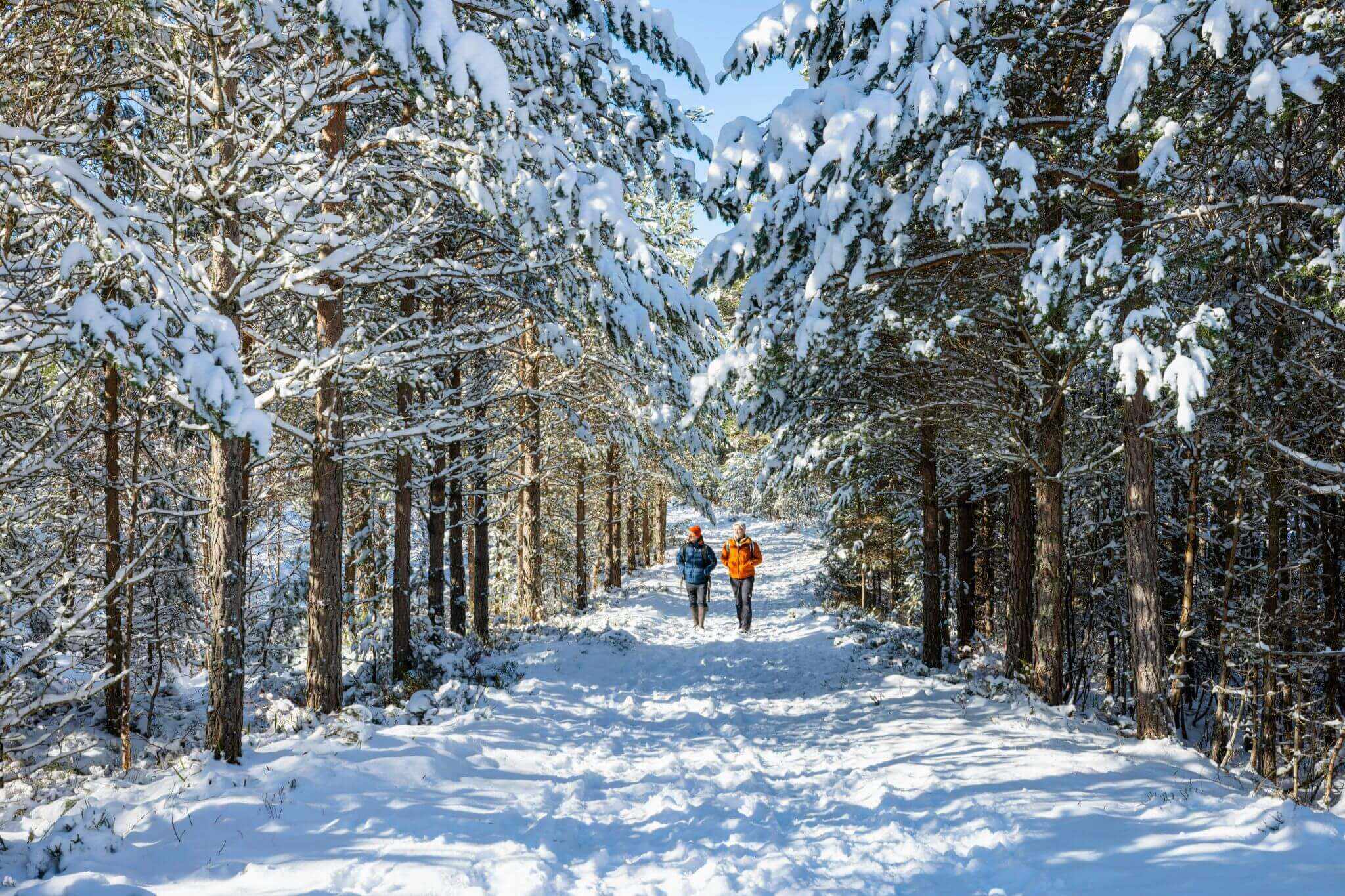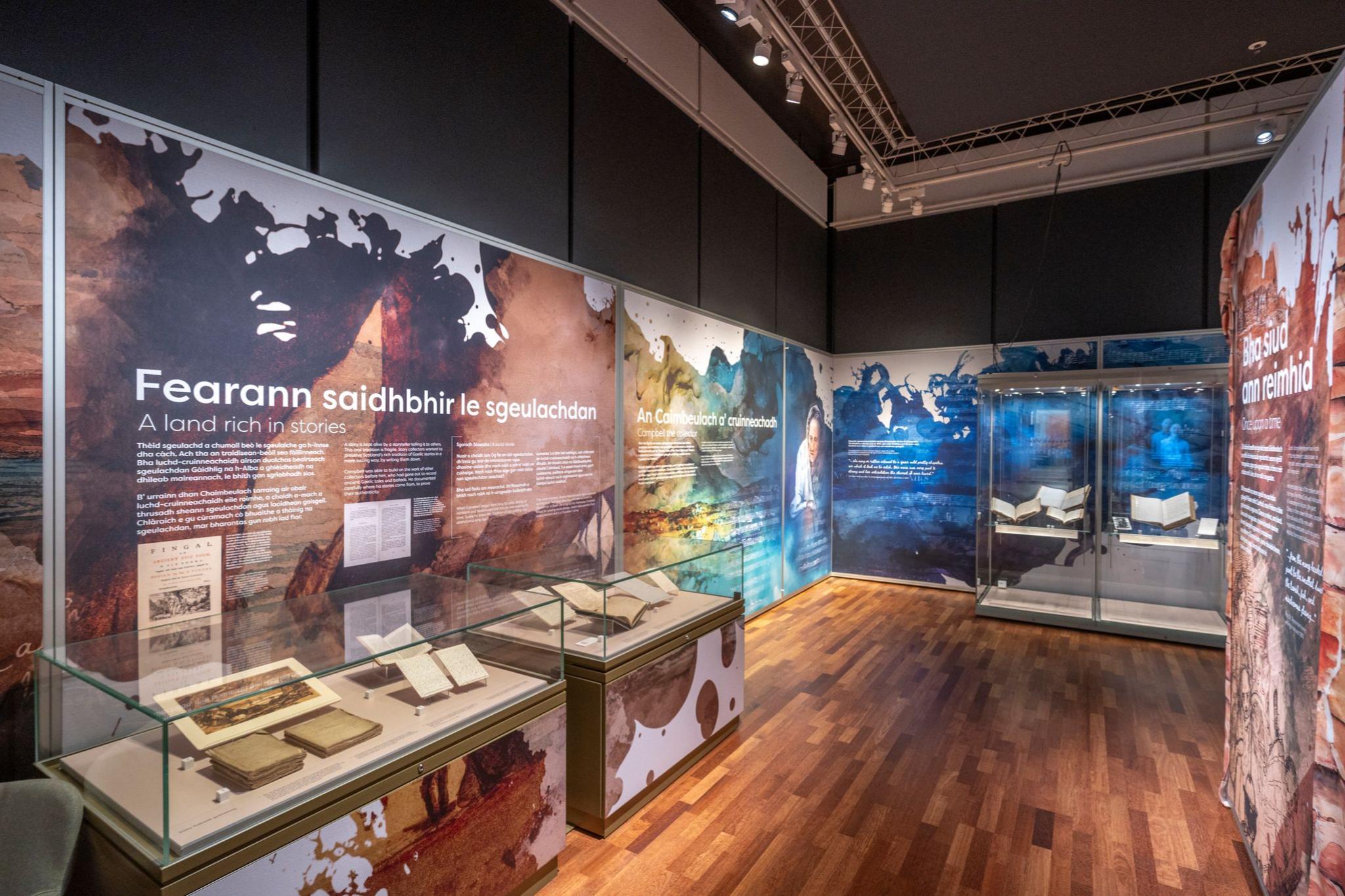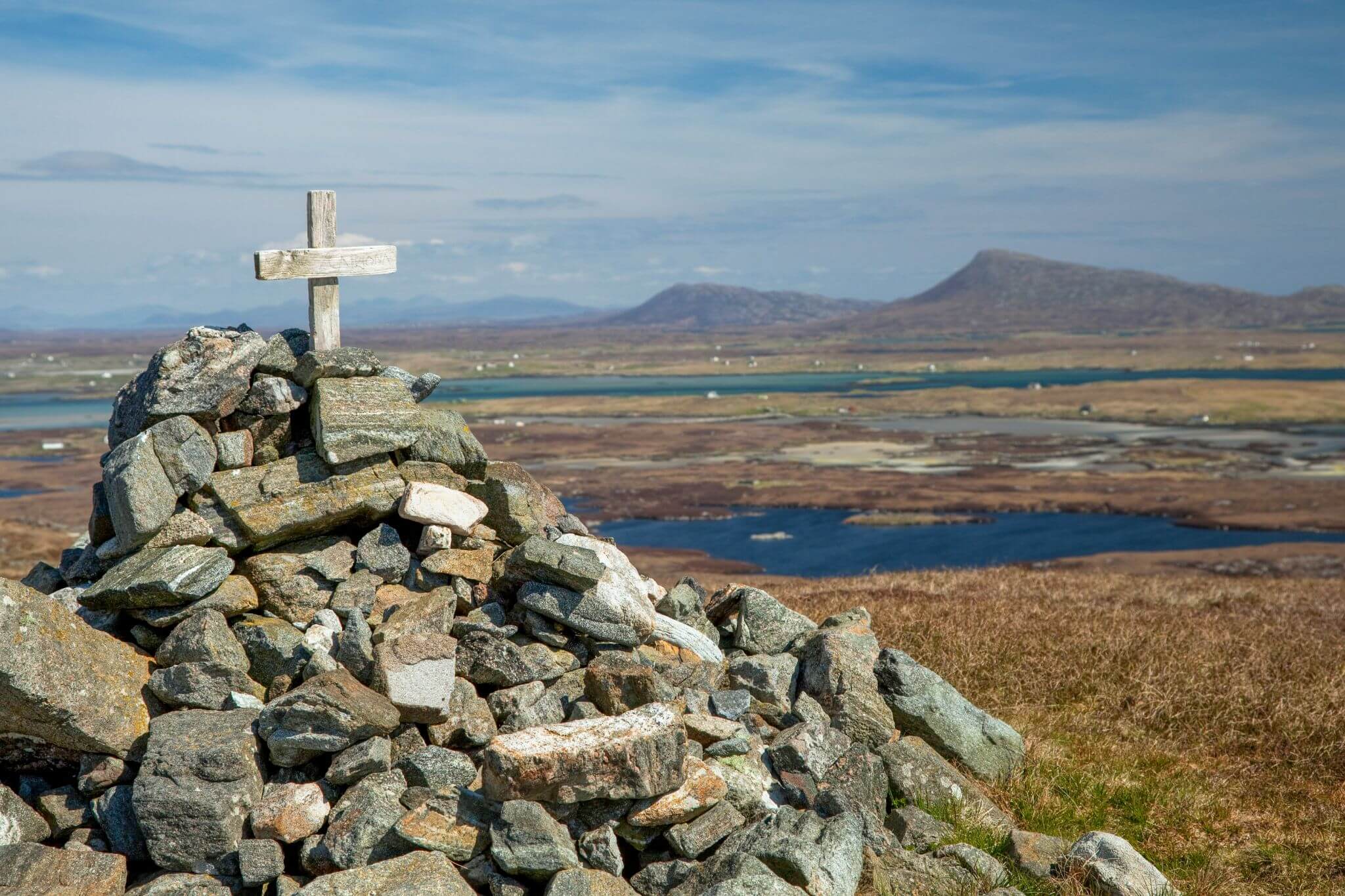BETA: The search and map are new features with further enhancements planned. VisitScotland is not responsible for the content of external links and accepts no liability for any reliance on these.
- Home
- Things to do
- Attractions
- Arts & Culture
- Our Scottish languages - dialects and phrases
- Coorie words for winter in Scotland
Coorie words for winter in Scotland
Do you know your 'Mirrie Dancers' from your 'unbrak', or your 'flukra' from your 'flin'? You're about to! I've pulled together a handy wee list of some of my favourite 'coorie' words to get you in the mood for a Scottish winter and hopefully inspire your holiday planning. Whether you're looking for adventure in the snowy hills or something a little bit more cosy, there's a Scottish word to learn more about the winter season.
The following list was created by VisitScotland to showcase a range of experiences. It isn’t ranked in any specific order.
- 1
'Coorie' – to snuggle or nestle in
Scots
Westerton Farmers farm shop
If you’ve heard of a wintery Scottish word, chances are it’s 'coorie’. But what does ‘coorie’ actually mean? In traditional Scots, it was used to describe bending or crouching in protection, usually from the weather! Nowadays, its meaning has evolved and we use it in a similar way to how the Danes use ‘hygge’, to talk about the feeling of cosiness, contentment and togetherness.
It’s a particularly appropriate word for this time of year in Scotland, encouraging us to slow down with the season and appreciate what winter brings – curling up with your favourite book by a wood-fired stove, wrapping up in thick woollen jumpers to venture out in the frost, watching sparkling city Christmas lights, or savouring a hot bowl of stew. All of these are ‘coorie’.
- 2
'Flukra' – large snowflakes falling
Shaetlan
Snow falling outside the Clachaig Inn
There’s nothing more magical in winter than watching the first snowflakes drift down from the sky. When they’re falling gently in large flakes, that’s when Shetlanders use the word ‘flukra’. Up in the north east, the word for very large snowflakes is also known as the closely related ‘flaggie’ in Doric. There are lots of different words for snow and snowflakes across Scottish languages (which I think says something about our winters), but one of the loveliest in Gaelic is to describe the sight of a few snowflakes floating in the wind: ‘spiandagan’.
Once you see the first large flakes beginning to fall, it’s time to keep a weather eye out and check the snow conditions on our mountains to make the most of ski season! If you’re looking for something less extreme, then getting outside on a gentle walk is still a great option – every Scottish landscape is enhanced by a blanket of snow. Just make sure you stay safe, check the conditions and #ThinkWINTER. It’s always okay to watch the snow fall with a wee dram inside instead.
- 3
‘Mirrie Dancers’ – the Northern Lights
Shaetlan
The Aurora Borealis and the Milky Way over Ballindalloch
© Andrew Allan
The Northern Lights can be seen across Scotland, but they’re often associated with the northern parts of the country and, up in Shetland, they’re known as the ‘Mirrie Dancers’. Mirr means ‘to shimmer’, but its similarity to the word merry means they’re often called the ‘Merry Dancers’ in the north of the mainland and in neighbouring Orkney. In Gaelic folklore, the spectacle is known as ‘Na Fir-chlis' or ‘the nimble men’, once thought to be faeries dancing in the sky.
There’s no guarantee you’ll see the Northern Lights on a trip to Scotland, but it makes the event even more special if you do. Our dark sky parks and unpolluted skies mean you’re in for a stargazing treat either way. The longer nights in winter make it the ideal time of year to venture out to see the stars, just make sure you wrap up warm!
- 4
'Seasgair' – cosy, protected, snug
Gaelic
SeaBeds Luxury Lookout Lodges, Woodlands Glencoe
© Woodlands Glencoe
‘Seasgair’ is almost like the Gaelic version of ‘coorie ’. It’s all about getting cosy and snuggling up, so it’s a great word to add to your vocabulary this winter. If you want to use it in a sentence, you can learn this phrase in Gaelic, ‘Cho seasgair ri luchag ann an cruach’, which translates into ‘as cosy as a little mouse in a haystack’.
If you want to be as snug as a bug or cosy as a mouse in a haystack, embrace the ‘seasgair’ tradition and book yourself some warming Scottish accommodation this winter. From atmospheric log cabins in the hills to lodges with hot tubs, sumptuous luxury hotels and castles to guesthouses with a roaring log fire, there is no shortage of options.
- 5
'Blin' – threatening to rain or snow but coming to nothing
Scots
Lost Valley, or 'Coire Gabhail'
'Blin' has many different meanings in Scots, but when you’re talking about the weather it usually relates to quite a common occurrence. When it turns dark and clouds roll threateningly across the sky, you’ll be tempted to grab your umbrella and wellies or, if you're like me, be getting excited for the first signs of snow. However, Scotland’s weather is nothing if not unpredictable, so this often comes to nothing! Sometimes that’s a relief, but it can also be disappointing if you’re expecting twinkling flakes of snow.
So how should you prepare for this dramatic and changeable weather? We’ve got you covered. Scotland’s weather can get a bad rep, but if you embrace the shifting seasons you’ll discover there’s beauty to be found in all weathers here, whether it’s atmospheric mist clinging to the hills or the ‘coorie’ feeling of watching the drizzle from inside a cosy café. As the saying goes in Scotland, ‘there’s no such thing as bad weather, only bad clothing’.
- 6
'Gloaming' – the time around dusk when the light glows
Scots
Winter solstice at Ring of Brodgar
© Orkney.com
‘Gloaming’ is one of my favourite words in Scots; it really encapsulates the golden lighting that occurs around dusk, particularly in autumn and winter. It comes from the old English word for twilight, ‘glom’, and it’s quite special to see Scotland’s landscapes bathed in this otherworldly light. Because the sun is so low in the sky throughout the day, especially the further north you travel, Scotland is blessed with spectacular winter skies of all hues and colours, with no two ever the same.
If you want to experience our skies and immerse yourself in the beautiful lighting they produce, then make sure you read our article on some of the best spots to catch a Scottish sunset. It’s packed full of dramatic and atmospheric viewpoints across the country, as well as some top hints and tricks for capturing sunsets on camera.
- 7
'To brak da brüid' – the first footprints in fresh snow
Scots

Friends walking through Glenmore Forest Park in the snow
© VisitScotland / Kenny Lam
When you wake to find the world turned white with snow, it’s an exciting experience to be the first to step out and leave the first footprints in the fresh powder. ‘To brak da brüid’ is the Scots phrase for being the first to break the path of snow, where ‘unbrak’ denotes almost the opposite – when the snow begins to thaw.
Whether you prefer your wintery wanders to be like walking in a snow globe or if you wait to venture outside until the snow is almost gone, either of these phrases mean it’s the perfect time to breathe in the fresh air and get exploring this season. We’ve pulled together a list of winter walks for you to enjoy that are lovely with or without snow!
- 8
'Flin' – rain which freezes before it touches the ground
Gaelic
Victoria Street in winter
‘Flin’ is the Gaelic word for my least favourite weather at this time of year: sleet. It’s that mix of rain and snow which leaves you pretty wet and cold. Another Scots word that comes to mind is ‘dreich’, which you can use to describe almost all grey or depressing weather in Scotland!
But never fear, when it’s grim outside there are plenty of world-class attractions and experiences to shelter in from the storm. Take the opportunity to explore an art gallery or to delve into Scotland’s history in a museum – we’ve got a handy list of rainy-day activities and attractions for when you want some respite from the elements. I also use it as an excuse to refuel and sample some of our winter food and drink offerings, from comforting soups to a fiery wee dram.
- 9
'Snell' – a piercing, biting cold
Scots
Frost on the window at Highland Safaris and Red Deer Centre
Okay, I’ll be the first to admit this sounds horrible but stay with me! Cold weather is usually part of our winter season at one time or another; we do experience all four seasons in their fullness. If you like wearing thick jumpers and scarves, then this is the time of year for you. There are lots of aspects of the cold that let you see Scotland in a new light, from sparkling frost-covered fields on a winter morning to the fiery warmth of a dram of whisky after being out in the cold. Plus the colder the weather gets, the better the opportunity to practice the art of ‘coorie’!
Whether it’s ‘snell’ or ‘blowin a hoolie’ (from the Scots word ‘hoolan’, meaning a very strong wind), it’s surely an excuse to indulge in our drinks and spirits. ‘Teòclaid theth’ (Gaelic for hot chocolate) becomes a must at this time of year, so make sure you treat yourself to some of our rich and chocolatey comfort offerings. If you want something a bit stronger, then sampling whisky is a great way of staving off the cold, warming you from the inside out!
Languages are always evolving and changing, so there are plenty of different ways of spelling and interpreting some of the words on this list. We've cited where we found translations of these words and phrases if you fancy learning more, but we also enlisted the help of our Gaelic, Scots and Doric speakers from across VisitScotland!
Other things you might like

Our Scottish languages - dialects and phrases

The history of Scottish Gaelic
10 Gaelic place names & their meanings

18 Braw Scottish words & their meanings
12 Guid Doric phrases & their meanings
Winter & Christmas breaks
Scotland's top 10 Scots poems for Burns Night
Join our Newsletter Clan
Get Scotland inspiration direct to your inbox. Don't miss the inside track from our Scotland experts on exciting trip ideas, unique attractions and hidden gems loved by locals.